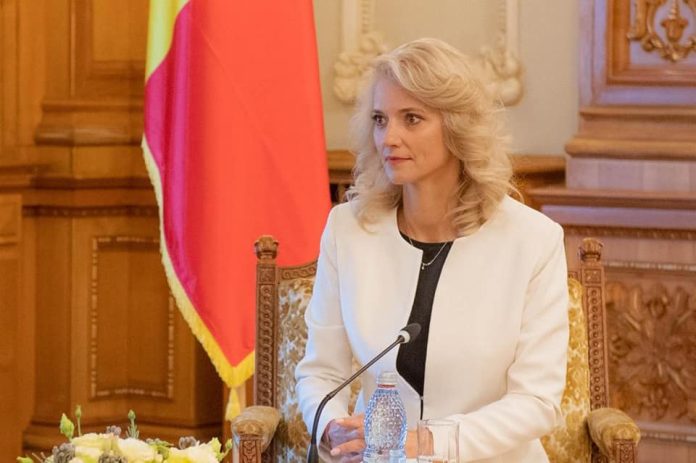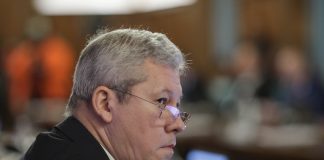Acting President of the Senate Alina Gorghiu said on Tuesday that, in times of crisis, societal resilience falls on the shoulders of women, because they keep families together and advocate for human rights, and „true resilience” will never be achieved without the implementation of gender quotas, according to Agerpres.
„Resilience. It has become a buzzword for Euro-Atlantic strategies, policies and legislation over the past decade. However, we have a long way to go. Russia’s war of aggression in Ukraine has shown the best and worst parts of Euro-Atlantic cooperation. We must work on incorporating resilience in all areas. Since Russia blocked Ukraine’s ports, Romania has managed to export almost 6 million tonnes of grain from Ukraine through our Black Sea and Danube ports. It has been possible only because the Romanian authorities took the necessary measures to increase the flexibility of our infrastructure and bureaucratic policies. It was a matter of increasing resilience,” Gorghiu said at the opening of the „Euro-Atlantic Resilience Forum: Black Sea Perspectives”, which takes place at the Palace of the Parliament.
According to the acting president of the Senate, every crisis is an opportunity for development, but one cannot expect to stimulate progress through disasters, the responsible choice for national Parliaments being the adaptation of legislation to the imminent change.
„We have the duty to set the standard for social resilience. (…) There is another indispensable dimension of resilience to which we must pay more attention – women. Over 2.7 million Ukrainian refugees entered Romania, most of them women and children. We have seen the fundamentally gendered nature of armed conflict! Women disproportionately affected by sexual violence, the mass exodus of refugees and the poverty risks. We have seen firsthand that in times of crisis, societal resilience falls on the shoulders of women. Those women who keep families together, who advocate for human rights. Women are not victims of war or disaster. They are survivors! Their experience must be harnessed to formulate and adopt measures, policies and laws that can build resilience. Not to be associated as tragic stories. There is widespread marginalization of women’s wartime experience in both public policy and academia. Without implementing gender quotas, true resilience will never be achieved,” added Alina Gorghiu.
In her opinion, „managing disasters and building resilient communities requires women’s leadership”.
„Women remain excluded from the peace process – less than 10 percent are at the negotiating table. This is the reason why we need a concerted effort to implement United Nations Security Council Resolution 1325 ‘Women, Peace and Security Agenda’. Romania has already adopted a National Strategy and a National Action Plan for the implementation of this agenda. Next year, the Government will start working on the next National Plan covering the period 2024 – 2027. We have made progress, but we cannot stop here,” continued Gorghiu.
She highlighted that the legislative initiative she submitted for the introduction of gender quotas is a necessity. The normative act was adopted by the Senate and the final vote is expected in the Chamber of Deputies.
„If adopted, it will be a game-changer for democracy in Romania. More women in Parliament means greater diversity in decision-making, which, in turn, translates into comprehensive approaches to laws and problem-solving. Strategic forecasts are a key ingredient to fostering resilience! Taking into consideration all scenarios can be difficult, but becomes impossible when the experience of over half the population is systematically ignored! This is how you build resilience in all areas. With diversity. With decentralized knowledge. Making room for all the voices,” added the acting president of the Senate.
„Euro-Atlantic Resilience Forum: Black Sea Perspectives”, an event organized by the Euro-Atlantic Resilience Centre, in partnership with the Senate, takes place on Tuesday and Wednesday at the Palace of the Parliament. A series of workshops and panels are scheduled that will address topics such as disinformation, hybrid war and aggression, natural disasters.
Agerpres




